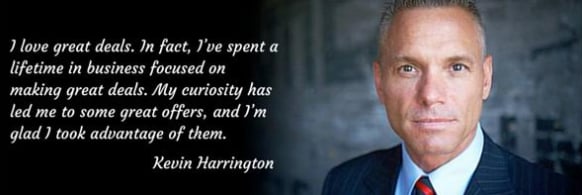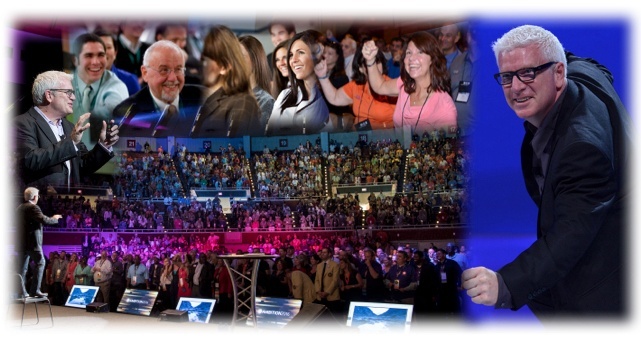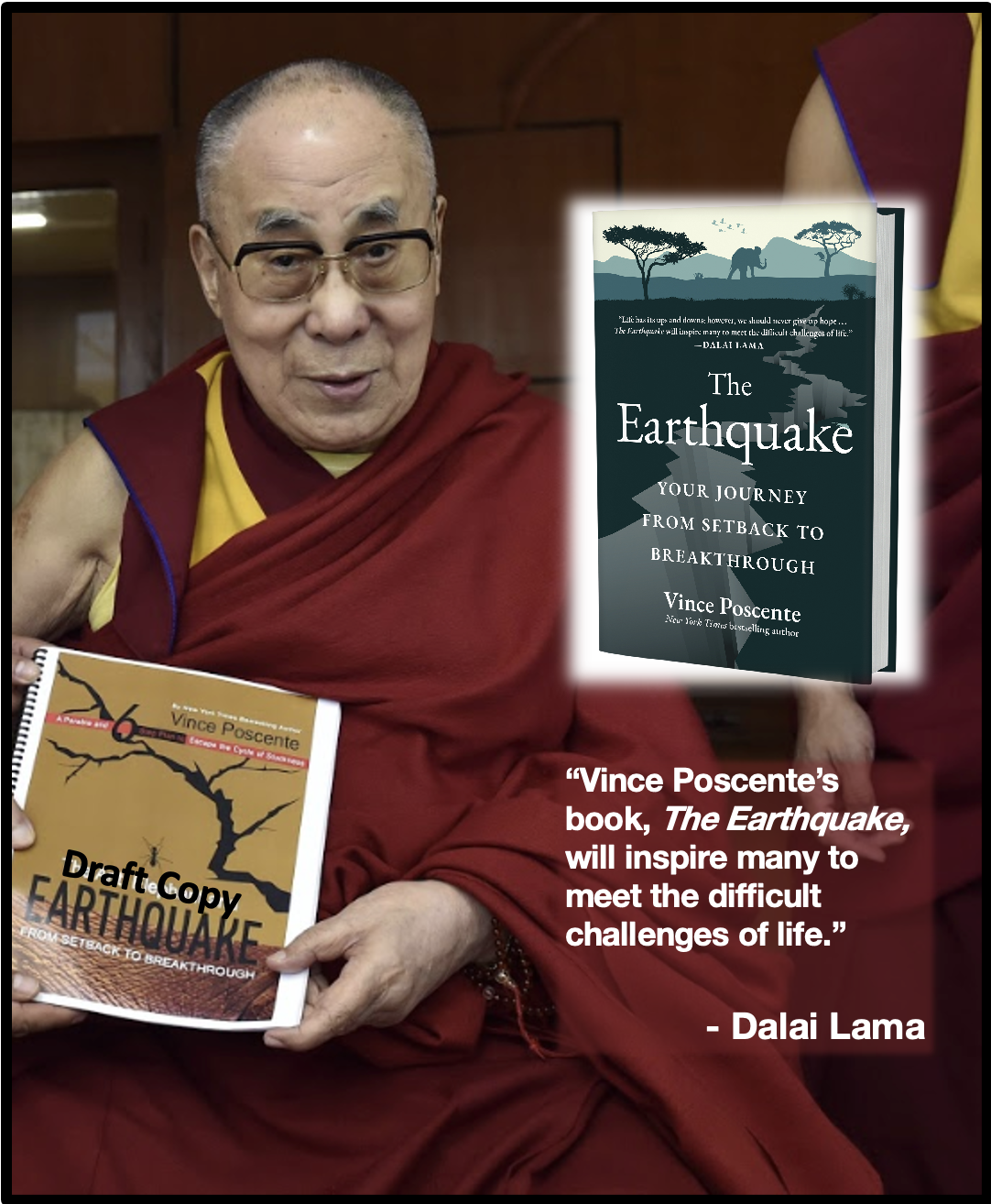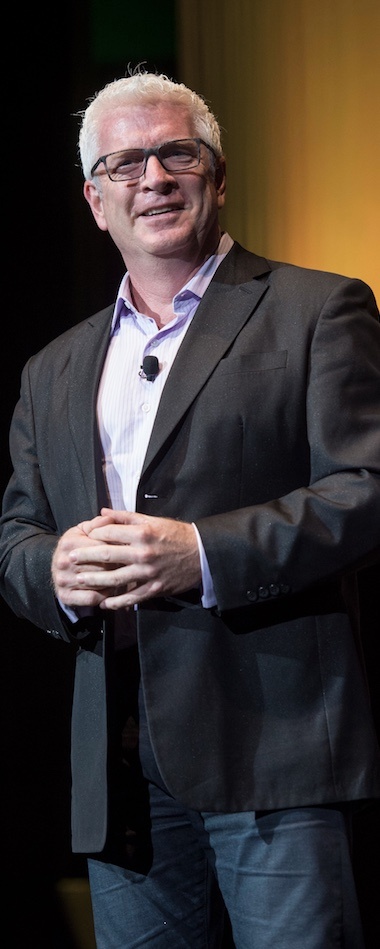Sometimes enthusiastic people and opportunity intersect. Here's an example:
Sometimes enthusiastic people and compelling opportunity intersect. Here's an example:
You may remember Kevin as:
- The original Shark on Shark Tank, or
- Founder of As Seen on TV, or
- Inventor of the infomercial. Remember the Ginsu Knife?

First, a bit of background... When Kevin was 15, he started his first business. By the age of 23, he founded The Small Business Center, a one-stop shop for all sorts of businesses; accounting, advertising and financing. This company launched his career as a serial entrepreneur and small business owner.
This his busy brain gave birth to an extraordinary idea...
It revolves around how small business owners and CEO’s can leverage technology to do more business together, raise their visibility with decision makers and efficiently go public with their products/services without wasting time and money.
"So we created an exclusive platform for leaders of businesses doing over $1 million in annual revenue," Here are some details about the Global Leaders Organization (GLO):
- Members Only ($299 annual membership, or as Kevin gushed in his ultra-enthusiastic way, "Vince, that's 82 cents per day!")
- Marketplace - Showcase your company’s products and services with the option to offer 'Specials' to members.
- The Deal Network - Provide GLO members new avenues for advancing key business transactions such as: raising capital, investing or acquiring companies, licensing, selling one's business or finding the right strategic partner.
- Peer to Peer Discussion Hub
- Lessons in Leadership - A webcast and podcast event series featuring today’s most relevant newsmakers and thought leaders.
- Main Street Leader - (My favorite feature by the way.) A personalized digital library curated daily from 100’s of leading publications so members save time, stay on top of topics preselected topics, and stay ahead of the competition.
- Knowledge Capital™ for participating there are GLO Points, a rewards system to cash in benefits such as: dinner with a NY Times bestselling author, one-on-one coaching sessions by a thought leader, custom tailored suits, luxury getaways, backstage entertainment passes and access to high-profile events (i.e. TED Summit and Clinton Global Initiative).
"BOOM," he said throwing his hands in the air. "Where do business leaders get that kind of value on one platform for 82 cents per day?"
When someone like Kevin Harrington and GLO show up, pay attention.
Question, how do you react when enthusiasm and opportunity intersect?
Here are three notes Kevin asked us to forward to you:
- Permanently lock-in this introductory rate by being one of the first 100 people in your city to join at $29.99 per month, or $299 if paid annually. Advertise your business and showcase your brand to peers you want to do business with daily plus enjoy all the benefits of GLO for same low price forever. Lock-in here.
- Receive a 10% rebate by referring a friend. Both of you will receive the rebate on your initial membership once they join. Just click here. This represents a $72 total annual savings you share.
- Give the gift of knowledge to an employee, student, friend or emerging entrepreneur. Provide two subscriptions to The Main Street Leader for a full year absolutely free. Just let us know whose day you’ll make with this gift. This represents a $144 value based on the single subscriber annual subscription price. Click here to take advantage.







 Eight years ago, and seconds after the media released a recording of Alec Baldwin saying his eleven-year-old daughter was a “rude, thoughtless little pig,” people were judging him a terrible father. Assumptions quickly followed that ex-wife Kim Basinger leaked the voicemail with malicious intent.
Eight years ago, and seconds after the media released a recording of Alec Baldwin saying his eleven-year-old daughter was a “rude, thoughtless little pig,” people were judging him a terrible father. Assumptions quickly followed that ex-wife Kim Basinger leaked the voicemail with malicious intent. 
 1st, Weakness Does Not Equal Honesty. There is a barrier to vulnerability if honesty takes a back seat to practicality. Executives giving a keynote clearly have a nerve-racking job. He or she has one chance to deliver the goods. But, robotically delivering a speech through a teleprompter is worse then a temporary mess up here or there. Honest, extemporaneous thought underpinning a well-crafted speech demonstrates a trusted leader. Just look at politicians who deliver a speech on a teleprompter and compare your gut-feel when that same politician is interviewed one on one. There is a genuine honesty that can be revealed when the mechanics are taken away.
1st, Weakness Does Not Equal Honesty. There is a barrier to vulnerability if honesty takes a back seat to practicality. Executives giving a keynote clearly have a nerve-racking job. He or she has one chance to deliver the goods. But, robotically delivering a speech through a teleprompter is worse then a temporary mess up here or there. Honest, extemporaneous thought underpinning a well-crafted speech demonstrates a trusted leader. Just look at politicians who deliver a speech on a teleprompter and compare your gut-feel when that same politician is interviewed one on one. There is a genuine honesty that can be revealed when the mechanics are taken away. Every Thanksgiving, the in-law’s side of the family get together at a little ranch south of San Antonio. It is a tradition.
Every Thanksgiving, the in-law’s side of the family get together at a little ranch south of San Antonio. It is a tradition.



 We speakers love our hotel partners; with one exception. We can't say the same about the guy who sets up the chairs. Time and again, the conference room is set up the same. Huuuuuuuuge middle aisle. Laser beam straight rows. An acre of property between the front row and the stage. Before your speaker even hits the stage, the energy in the room is compromised.
We speakers love our hotel partners; with one exception. We can't say the same about the guy who sets up the chairs. Time and again, the conference room is set up the same. Huuuuuuuuge middle aisle. Laser beam straight rows. An acre of property between the front row and the stage. Before your speaker even hits the stage, the energy in the room is compromised.  There is no exact seating design that works for every room, but generally follow these three rules.
There is no exact seating design that works for every room, but generally follow these three rules.




